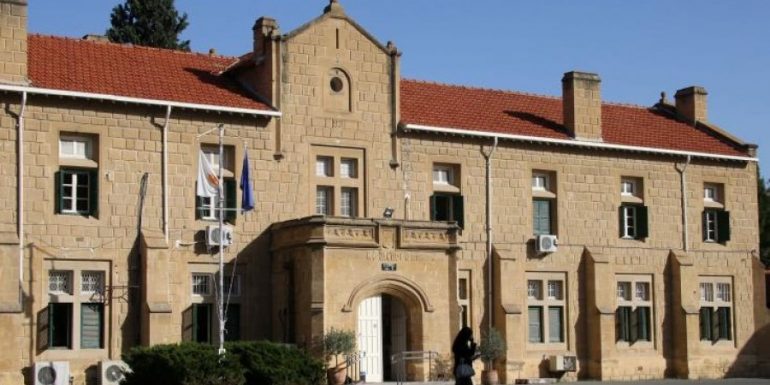The legality and unconstitutionality of the decrees imposing restrictive measures against the coronavirus pandemic has been called to the Nicosia District Court.
Answering questions from KYPE on the issue, lawyer Nikos Clerides stated that he acts as a lawyer for citizens who have been prosecuted for violating the measures against the coronavirus pandemic and has raised the issues of legality, unconstitutionality and non-constitutionality. observance of the principle of proportionality and equal treatment of decrees issued.
Specifically in the first case which concerns a village priest in the province of Nicosia who according to the indictment allowed five believers to be inside the church in violation of the restrictive decrees concerning the Law on Infection, Mr. Clerides stated that during the presentation of the case objected to his client responding to the indictment, raising the question of "the validity of the charges on which the indictment is based, ie those per the decrees concerning restrictive measures in general".
According to him, the case has been set before Judge Michalis Loizos, in the District Court of Nicosia, on April 23, when the representative of the Prosecution Authority will respond to the arguments already brought before the Court by Mr. Clerides and is expected to be reserved for later the decision. In the meantime, he is handling two more similar cases involving believers, one of which is also set for April 23 before another Judge and one set for today, the outcome of which he believes will depend on the outcome of the first case.
Asked to explain the arguments he presented before the Court, Mr. Clerides said that he raised the issue that "the indictment is invalid from the beginning because it is based on decrees which are illegal and unconstitutional".
The objection to the legality of the decrees lies, according to Mr. Clerides, first that the decrees, which are in fact Regulatory Administrative Acts (KDP) are illegal because according to article 88 of the 1989 law, a Minister has the authority to issue such decrees. or KDP, but they must be submitted to Parliament for approval.
Answering a clarifying question on the subject, he stated that the indictment itself calls them decrees but refers to a CPC. The KDPs are submitted to Parliament, he said, adding that "they have not been submitted and have not been approved, so they are invalid from the beginning".
The second issue raised by Mr. Clerides is that even if the decrees are valid, the Constitution provides the power to enact laws or decrees or CPCs in order to restrict basic human freedoms and individual rights protected by the Constitution. He gave the examples of the right of free movement, the right of religion and the right of free assembly.
These restrictive measures can be issued for two reasons, to protect public health or public safety, he said, adding that in this case they have been issued to protect public health. However, he noted, "such restrictions should be of such a nature as not to inactivate the right to such an extent that they deprive it completely and should not infringe on the core of the right."
"In this case, it is my position that the core of the right is affected, so it is unconstitutional," he said.
The third point, continued Mr. Clerides, "is that the principle of proportionality should be observed". That is, he explained, "there is a need for public health that I share and I am one of the first to say that there are rightly restrictive measures." But, he added, "the principle of proportionality tells us that restrictive measures must be of such a nature for each specific case that it will be exactly what is needed and nothing more for the specific purpose." In this case, he said, "we have gone beyond what was needed to protect public health, that is, we have gone beyond the limits."
Mr. Clerides also referred to the need to comply with Article 28 of the Constitution which speaks of equal treatment. That is, he said, you can not leave betting shops that are closed and the churches are closed or the interiors of restaurants are closed and the malls are open.
"The rule of law must be above all. The principle of legality ", he noted. He rightly added, "that the restrictive measures should exist, but that they should be done correctly within the framework of the law". He also said that the core of a right could be violated if a state of emergency was declared under the provisions of the Constitution, which has not been done.
